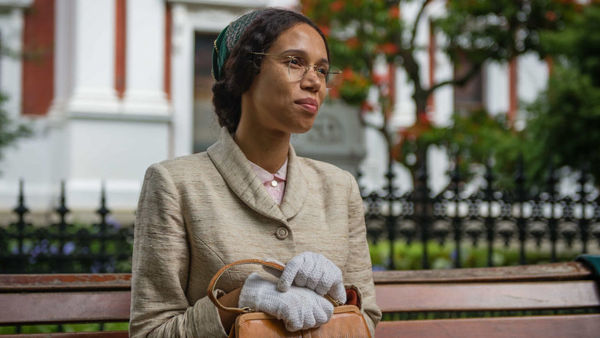Doctor Who Series 11: 10 Big Questions We Are Asking After 'Rosa'
All the major talking points after the latest episode of Doctor Who: Rosa.

It was one of the boldest episodes of Doctor Who to date. A rare foray into the recent past, and an encounter with one of the most significant people of the last century.
Co-written by children’s author Malorie Blackman (Noughts and Crosses) and showrunner Chris Chibnall, the thirteenth Doctor’s first trip back in time tackles head-on the experiences of black Americans in the 1950s and the events that led to the historic Montgomery bus boycott overseen by Doctor Martin Luther King: the beginning of the end of segregation.
It could have all gone so horribly wrong – nothing but a crass attempt to fictionalise the story of Rosa Parks and her refusal to give up a seat on the bus, or worse still a dramatised reading of a Sunday School lesson. Thanks largely to the stellar performance of Vinette Robinson as Rosa, it managed to hit all the right emotional notes and provoke exactly the kind of questions that every society needs to consider, however enlightened we think we are.
Unless Krasko has been zapped back in time in readiness for another adventure, or the references to Grace and her passion for Rosa Parks are more than shortcuts to Graham knowing the name of the driver, this one doesn’t contribute towards a series arc.
Instead, it provides a message of timeless significance, one that is likely to need revisiting again and again. It ever a Doctor Who episode should be shown in schools, this was it.
10. How True to the Real Life Events Was the Story?

Doctor Who takes place in its own universe, not ours. Its earth is a parallel one which sometimes mirrors our own and sometimes tells a completely different story. That means that any deviations from history as we know it can be easily accounted for. That said, the programme was originally written to educate children in matters of ethics, science and history. Rosa reflects both that goal and Sydney Newman’s love of science-fiction stories for being “a marvellous way — and a safe way … of saying nasty things about our own society.”
It would have been irresponsible for the story to be sensationalised or embellished whether to entertain or force home the powerful message. Indeed, the whole point of the Doctor’s involvement was to ensure that history wasn’t altered. Not every school teaches the story of Rosa Parks, and many children would not have had the head start afforded to Yaz and Ryan.
The episode was filled with accurate references to Parks’ life, from her upbringing and wish to be a teacher to her 1996 Presidential Medal of Freedom award. After Ryan is racially abused for trying to help a white woman, Parks reminds him of what happened to Emmett Till, murdered aged fourteen in a racially motivated attack earlier that same year. Its mention in the story is significant because Parks cites that event as one of the motivations behind her decision not to give up her seat.
The two bus incidents stick largely to the accounts of Rosa herself and other witnesses, even including some of the lines that were actually said, such as Parks’ defiant “you may do that” when driver, James Blake, threatens her with arrest.
There were aspects that the episode did overlook, however, such as the fact that Rosa was not the first black person to defy the bus company, and the tiny minority of white supporters of the civil rights movement in Montgomery such as Rev Robert Graetz.